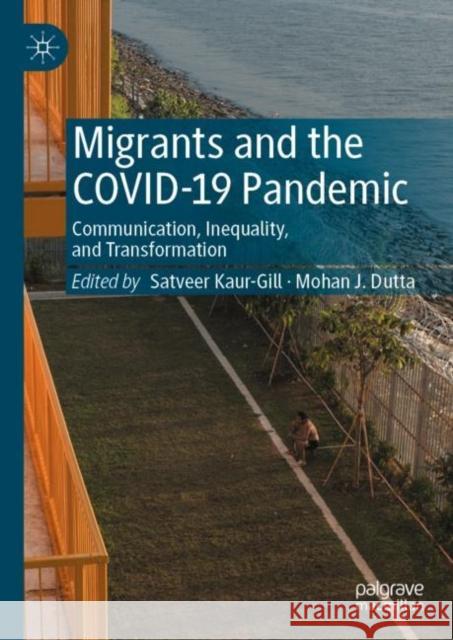Migrants and the Covid-19 Pandemic: Communication, Inequality, and Transformation » książka
Migrants and the Covid-19 Pandemic: Communication, Inequality, and Transformation
ISBN-13: 9789811973833 / Angielski / Twarda / 2023 / 179 str.
Migrants and the Covid-19 Pandemic: Communication, Inequality, and Transformation
ISBN-13: 9789811973833 / Angielski / Twarda / 2023 / 179 str.
(netto: 575,06 VAT: 5%)
Najniższa cena z 30 dni: 539,74
ok. 16-18 dni roboczych.
Darmowa dostawa!
This book looks at the impact of the COVID-19 pandemic on migrants globally who bear disproportionate burdens of health disparities. Centering the voices of migrants as anchors for theorizing health, the chapters adopt an array of decolonizing and interventionist methodologies that offer conceptual communicative resources for re-organizing economics, politics, culture, and society in logics of care.Each chapter focuses on the health of migrants during the pandemic, highlighting the role of communication in amplifying and solving the health crisis experienced by migrants. The chapters draw together various communicative resources and practices tied to migrant negotiations of precarity and exclusion. Health is situated amidst the forces of authoritarianism, disinformation, hate, and exploitation targeting migrant bodies. The book builds a narrative archive witnessing this fundamental geopolitical rupture in the 21st century, documenting the violence built into the zeitgeist of labor exploitation amidst neoliberal transformations, situating health with the extractive and exploitative forms of organizing migrant labor.The book is essential reading for advanced undergraduate or graduate courses for scholars studying critical and global health, development, and participatory communication, migration, globalization, international and intercultural communication interested in the questions of precarity and marginality of health during pandemics.
This book looks at the impact of the COVID-19 pandemic on migrants globally who bear disproportionate burdens of health disparities. Centering the voices of migrants as anchors for theorizing health, the chapters adopt an array of decolonizing and interventionist methodologies that offer conceptual communicative resources for re-organizing economics, politics, culture, and society in logics of care. Each chapter focuses on the health of migrants during the pandemic, highlighting the role of communication in amplifying and solving the health crisis experienced by migrants. The chapters draw together various communicative resources and practices tied to migrant negotiations of precarity and exclusion. Health is situated amidst the forces of authoritarianism, disinformation, hate, and exploitation targeting migrant bodies. The book builds a narrative archive witnessing this fundamental geopolitical rupture in the 21st century, documenting the violence built into the zeitgeist of labor exploitation amidst neoliberal transformations, situating health with the extractive and exploitative forms of organizing migrant labor. The book is essential reading for advanced undergraduate or graduate courses for scholars studying critical and global health, development, and participatory communication, migration, globalization, international and intercultural communication interested in the questions of precarity and marginality of health during pandemics.











